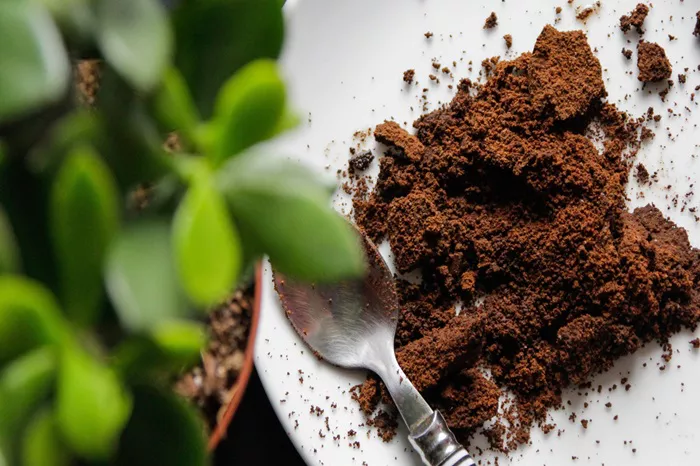If you’ve ever brewed a cup of coffee using your Keurig machine only to find unwanted coffee grounds floating in your cup, you’re not alone. This issue can be frustrating, but understanding the common causes and learning how to troubleshoot the problem can help restore your Keurig to its optimal performance. Here’s a guide to help you identify the causes of grounds in your coffee and the best solutions for fixing and preventing the issue.
Common Causes of Grounds in Coffee
Several factors can lead to grounds in your cup when using a Keurig machine. Here are some of the most common causes:
Clogged Needles
Keurig machines have two needles that puncture the K-Cup—one at the top and one at the bottom. If these needles become clogged with coffee grounds or debris, they can cause uneven extraction or allow coffee grounds to enter the brew cycle.
Faulty K-Cups
Sometimes, a defective or improperly sealed K-Cup can result in grounds leaking into the coffee. This can happen if the K-Cup has a hole or is not punctured properly.
Improper Use of Reusable Filters
Reusable K-Cup filters require careful attention. If the filter is overfilled, or the coffee grounds are too fine, they can easily pass through the filter and end up in your cup.
Dirty Brew Basket
A dirty brew basket can accumulate coffee grounds, causing them to mix into your coffee during brewing. Over time, the buildup of grounds or mold in the brew basket can affect the overall brewing process.
How to Identify the Issue?
To pinpoint which part of the machine is causing the grounds in your coffee, follow these steps:
Check the Needles
Inspect the top and bottom needles for blockages. If coffee grounds or debris are present, this could be the culprit.
Examine the K-Cup
Inspect the K-Cup to see if it’s damaged or if the foil seal is punctured incorrectly. If you notice any issues, replacing the K-Cup or ensuring it’s properly placed in the machine may solve the problem.
Inspect the Brew Basket
Look for any buildup of coffee grounds in the brew basket. A dirty basket can sometimes allow coffee grounds to spill into the cup during brewing.
Cleaning and Maintenance Tips
Regular maintenance is key to preventing grounds in your coffee. Here are some cleaning tips for your Keurig:
Clean the Exit Needle
To prevent clogged needles, use a paper clip or a Keurig needle-cleaning tool to gently unclog the holes. Carefully insert the paper clip into the needle holes to remove any buildup of coffee grounds.
Descale the Machine
Over time, mineral buildup can affect the machine’s performance. To descale your Keurig, use a descaling solution or white vinegar. Run a few cycles of water through the machine without any K-Cup to remove mineral deposits.
Clean the Brew Basket
Remove and clean the brew basket regularly. Wash it with warm, soapy water and ensure there is no buildup of old coffee grounds or mold.
Rinse the K-Cup Holder
Clean the K-Cup holder and ensure that no coffee grounds are left behind that could affect future brewing.
Troubleshooting Steps
If grounds continue to appear in your coffee, follow this step-by-step troubleshooting guide:
Run Water-Only Brew Cycles
Before brewing a K-Cup, run a water-only cycle through the machine to flush out any leftover coffee grounds or debris from previous brews.
Unclog the Needles
If the needles are clogged, carefully use a paper clip to remove any blockages. You can also use a needle-cleaning tool if your Keurig model includes one.
Check the K-Cups
Ensure that you’re using compatible, high-quality K-Cups. If you’re using a reusable filter, make sure you’re not overfilling it and that you’re using the correct grind size for your coffee. Coarse coffee grounds work best with reusable filters.
Proper Placement of the Brew Basket
Ensure that the brew basket is correctly placed and securely seated in the machine. If it’s not properly aligned, coffee grounds can leak into the coffee.
Preventive Measures
To prevent coffee grounds from getting into your coffee in the future, follow these tips:
Clean Regularly
Set a reminder to clean your Keurig machine every 1-2 weeks, depending on how frequently you use it.
Use the Right Grind Size
For reusable filters, use coarsely ground coffee. Fine grounds can slip through the filter and cause grounds to end up in your cup.
Don’t Overfill Reusable Filters
Avoid overfilling your reusable K-Cup filter, as this can cause coffee grounds to spill over and clog the machine. Stick to the recommended amount for best results.
Use High-Quality K-Cups
Ensure that you’re using high-quality, properly sealed K-Cups to avoid any leakage of coffee grounds.
When to Seek Professional Help?
If you’ve tried all of the troubleshooting steps and are still experiencing issues with coffee grounds in your cup, it might be time to seek professional assistance. If your Keurig is under warranty, contact Keurig custom
er support for guidance or to arrange for repairs. Persistent issues could indicate a deeper mechanical problem that may require professional repair or replacement of certain parts.
Conclusion
Grounds in your Keurig coffee can be a frustrating issue, but with regular cleaning, proper use of K-Cups, and attention to detail in the brewing process, it’s a problem that can be easily fixed. By following the troubleshooting steps outlined above, you can ensure that your Keurig machine continues to deliver smooth, grounds-free coffee every time. If the issue persists, professional help may be required to restore your machine to peak performance.
Related topics:


